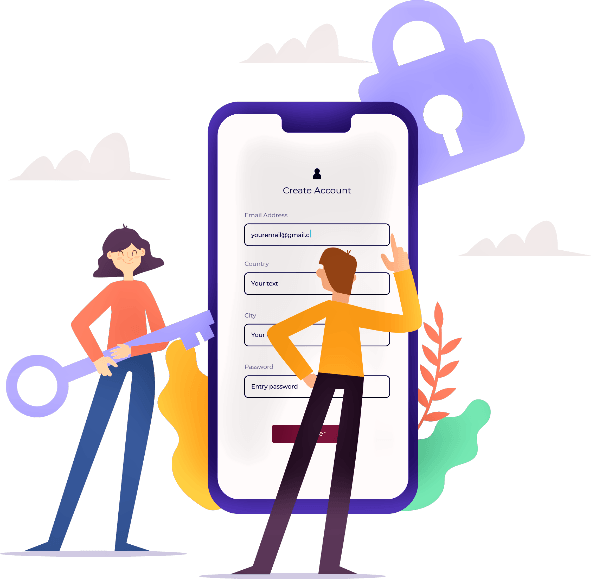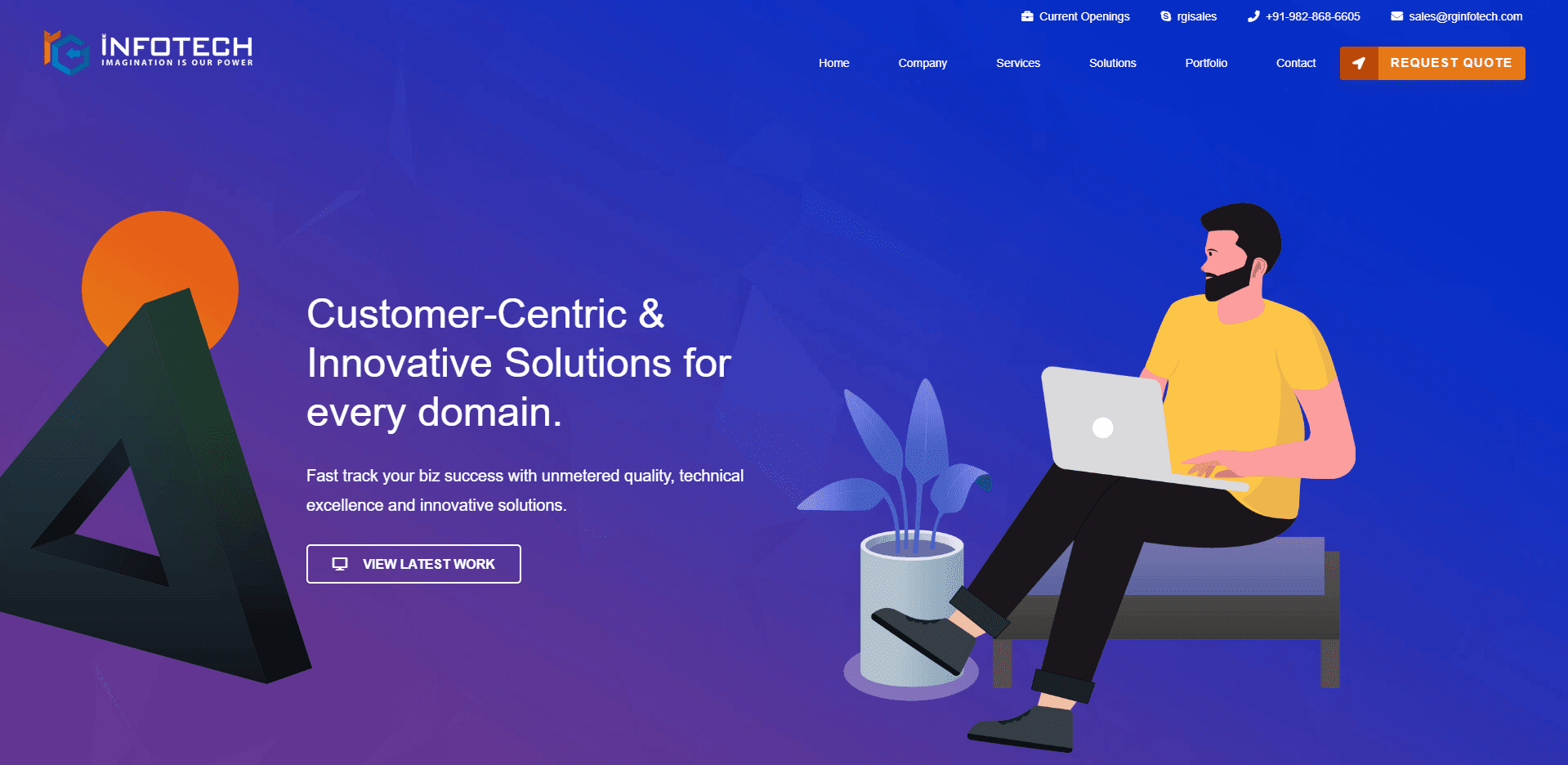White Label Telemedicine App Development Company

Telemedicine is one of the powerful solutions for healthcare providers, patients, and medical institutions in a world where technology continues to shape the future of telehealth.
It is becoming increasingly vital in modern telehealth care delivery with the rise in smartphones, high-speed internet, and better digital tools.
Many telemedicine providers and businesses seek a telemedicine app development company to design innovative solutions to bridge the gap between patients and medical professionals.
Grand View Research states that the global telemedicine market revenue is USD 114.98 billion in 2023 and is expected to reach USD 380.33 billion by 2030.

In this blog, we are going to discuss the telehealth software development, and key aspects of a white label telemedicine app, with a deeper insight into its features, services, and trends that will define the healthcare future.
Be it a hospital, clinic, or insurance company, this guide is going to provide insights for enhancing your service and providing better care to patients through telemedicine applications.
What is Telemedicine App Development?
Telemedicine app development is mobile and web application design, wherein healthcare service providers reach out to their patients online. The applications offered include all functionalities from video consultancy to sending prescriptions, scheduling appointments, etc.
Telemedicine brings health care right to the patient’s fingertips so that patients can get hold of doctors, therapists, or any other health care professionals sitting at home.
When collaborating with a telemedicine software development company, make sure it possesses the following qualities:
-
-
-
- Experience: Best telemedicine app developers have delivered work with proven track records of developing user-friendly and HIPAA-compliant telemedicine apps.
- Affordability: Although quality is important, affordability also plays an essential role. A telemedicine app development company must be cost-effective but without compromising features.
- Expertise in Security and Compliance: Since data is pretty sensitive, your telemedicine application must be HIPAA compliant.
-
-
Telemedicine App Market Overview
-
-
-
- The market size is predicted to increase by 18.6% from 2024 to 2030.
- The product is forecasted to generate revenue valued at around USD 59.75 billion in 2023.
- Geographically, in 2023, the highest revenue was held in North America. The highest CAGR is expected to be recorded from the UK between 2024 and 2030.
-
-

Important Tip: A telemedicine app development company essentially is your digital healthcare partner.
There are numerous telemedicine software development firms, but you want to find the right one to grab the opportunity. Whether you are a health provider or a hospital joining the digital revolution, the best telemedicine app firm like RG Infotech is essential.
You may want a custom telemedicine app development solution, or possibly a general-purpose platform, but the right developer will guide you through the process of developing an application aligned with your goals.
Key Features to Consider While Develop A Telemedicine App
A telemedicine app designed with many features in mind would present a multitude of things that better patient care and raise the general medical experience. Some of the most in-demand features, that a telehealth software development company should include in your app, are as follows:
Video Consultation: This is the backbone of telemedicine. This feature allows the patients to connect with their doctors via video calls to easily make remote diagnoses and treatments.
Audio Consultation: It is an excellent alternative for patients who do not have a high-speed internet connection. This will ensure that in areas with low internet connectivity, the service can still be delivered.
Chat Consultation: Patients at times want to query or get an update via chat, instead of a full consultation. Provide secure messaging in your application so that patients as well as doctors can message in real time.
Prescription Sharing: The key aspect of a telemedicine application is that it must share prescriptions safely. It enables physicians to prescribe easily, along with the prescriptions that are directed to pharmacies or the device’s electronic medium to patients.
Sharing of Medical Records: Secure sharing of medical records by doctors, specialists, and patients is essential. This feature allows a patient’s whole health history to be accessed by doctors and other medical professionals, thereby leading to more accurate diagnoses and treatment plans.
Appointments Scheduling: Patients can schedule appointments directly with their provider through telemedicine. This eliminates making a phone call or going to the clinic in person to schedule a visit.
Real-Time Patient Monitoring: With advancements in wearable technology, telemedicine applications will now provide real-time monitoring of the patient, tracking his vital signs such as heart rate, blood pressure, and even blood sugar levels. Such information will be directly communicated to the doctor, allowing chronic conditions to be proactively managed.
Emergency Alerts: It is very important to alert telehealth providers and patients about emergency conditions. Emergency alert features can be added to the telemedicine apps so that providers will be notified about emergencies.
Health Reminders: Patients will be reminded about medication schedules, follow-up appointments, or health checkups. This will keep patients on top of healthcare routines.
AI-powered Health Assessments: It can help telehealth providers diagnose symptoms, suggest treatments, or refer patients to the right specialist.
Telepsychiatry: Psychiatric services are needed, and telemedicine is a common platform on which patients contact therapists or psychiatrists for virtual counseling, therapy, and mental support.
Teledermatology: Patients experiencing skin diseases can avail of teledermatology wherein images of the dermatological problems are sent to doctors for examination and guidance or treatment.
Telecardiology: With services from telecardiology, doctors can see how patients with heart conditions fare and even give them consultations and diagnoses from diagnostic data.
With all these features you can create an amazing telehealth app. Let’s move forward with the basic question that keeps popping into everyone’s mind, Why is telemedicine service essential?

Transform Healthcare with a Custom Telemedicine App.
Why is Telemedicine App Development Service Important?
The medical industry is dramatically changing, and embracing telemedicine cannot be chosen but must be followed. Let’s see why telehealth providers, clinics, hospitals, and even insurance companies should make investments in telemedicine app development services:
Accessibility: Telemedicine facilitates accessing care for those who might be remote or underprivileged groups in areas that cannot benefit from medical providers due to inaccessibility. A patient does not have to leave their home to get an opinion from a doctor or receive treatment.
Cost Reduction: Telemedicine reduces the need for visits, which lowers the costs of health facilities. Besides that, telemedicine software development services can help simplify administrative tasks, thereby saving time and resources.
Improved Satisfaction to Patients: The patients will be looking for easy access and flexibility in health services. You can increase patient convenience to a higher level through your services, which may include video consultations, chat consultations, or appointment scheduling.
Improved workflow efficiency: These telemedicine apps offer streamlined workflow, reduce administrative burdens on telehealth providers, and thus improve overall productivity. Such benefits would be of great importance to large clinics and hospitals with extremely large patient volumes.
Telemedicine App Development Step-By-Step Guide
1. Conduct Market Research and Define Features
Know the Needs: Study the requirements of your target patients, telemedicine providers, and administrators. Identify the features that are most required by them.
Feature List: Features that most telemedicine apps will provide:
-
-
-
- Video and voice consultation
- Schedule appointments and reminders
- Patient profiles containing health history, prescriptions, etc.
- Payment gateway
- Prescription management
- The follow-up messaging system
- Compatibility with several devices like mobile, tablet, desktop
- HIPAA (Health Insurance Portability and Accountability Act) compliant to ensure that data security is upheld.
- Competing Analysis looks at other telemedicine apps to see what they are doing right or wrong.
-
-
2. Select The Proper Technology Stack
-
-
-
- Front-end / UI/UX: Make selections among options like Android, and iOS and use cross-platform development frameworks like React Native or Flutter.
- Back-end: Choose scalable back-end technologies. Some of these would include the use of Node.js, Django, or Ruby on Rails. It also supports HIPAA-compliant data management.
- Video Integration: Good quality video conferencing-based APIs like Twilio, Agora, and WebRTC.
- Database: A safe database like PostgreSQL or MongoDB will be used to store the patient data and medical records.
- Cloud Storage: it should be located in the cloud through the use of AWS, Google Cloud, or Microsoft Azure.
-
-
3. HIPAA Compliance and Data Security
-
-
-
- HIPPA Compliance: This is very important for telehealth applications, especially in the U.S. Make sure your application encrypts sensitive data, retains secure user authentication, and has messaging capabilities as well.
- Data Encryption: Encryption of video calls, messages, and medical information is end-to-end.
- Authentication & Authorization: Implement safe login methods such as 2FA or SSO appropriate for use by patient and provider.
-
-
4. Core Functionality Development
- Patient Registration & Profile Management: Produce friendly user forms for patient registration, entry of their health history, management of their medical profile, etc.
- Doctor’s Registration & Profile: Design a form for a doctor’s registration, upload his qualifications, and set up his availability for consultation.
- Booking & Scheduling: Have a scheduling system to make appointments, send reminders, and cancel or reschedule appointments.
- Video Consultation Feature: Incorporated video calls of high quality with low latency and clear communication.
- Payments Integration: the consultation should have payment systems integrated for such consultancies, with the assistance of services from Stripe, PayPal, or in-app purchases.
- Patient-Doctor Messaging: an assured messaging service to enable the patient and the doctor to send messages between their consultations.
5. Test The Telemedicine App Thoroughly
- Usability testing: It should make it easy for both patients and caregivers to use the app intuitively. Test on other screens and devices.
- Performance Testing: Ensure video calls, uploading or downloading files, and more such features work well under various network conditions.
- Security Testing: Includes tests for possible vulnerabilities such as data leaks, insecure communication, or unauthorized access.
- Bug fixing: Any bugs found during the testing, such as UI glitches, performance issues, or broken features.
6. Deployment and Monitoring
- Launch Beta Version: It is the launching of the application in a specific region or to a certain segment of users to garner feedback and make improvements.
- Collect feedback: Use surveys, ratings, and reviews to understand what users like and what can be improved.
- Recursively Improve: Update the app repeatedly with fresh and new features, corrections, and enhancements.
- Monitor Analytics: Use tools like Google Analytics or Firebase to track user engagement, video call quality, payment processing, and app performance.

Take a Guided Trip To Our Telemedicine App
Check the amazing medical experience for patients and providers
Latest Telemedicine App Development Trends
With these emerging telemedicine app development trends, it has bright prospects ahead. Given this constant advancement of technology, here are some trends concerning the development of a telemedicine app:
Integration with Wearables: Telemedicine apps will integrate with fitness trackers and smartwatches, including all health monitoring devices. With such integration, doctors will be able to track their patient’s health in real-time even from a distance.
Blockchain for Data Security: The largest challenge in telemedicine is security, though its adoption on the level of patient data will significantly assure safe storage and sharing of patient data and, as a result, higher levels of privacy and transparency.
AI and ML: AI and machine learning will continue to drive telemedicine application development. From simple chatbots to diagnostics to predictive analytics, all these would simplify the work of telehealth providers so that the care is on time and accurate.
Expanded Mental Health Services: Telemedicine software apps will be more inclined to provide easy access to therapy, counseling, and other mental health support because the demand for such services is ever on the increase.
Telemedicine for Chronic Conditions: More usage of telemedicine apps in chronic conditions like diabetes, hypertension, and heart conditions. With real-time monitoring and regular check-ins, better management of conditions by the patient and less visitation to the hospital would reflect an improvement in quality of life.
Looking Ahead For Future of Telemedicine Apps With RG Infotech
The future of telemedicine apps shines very bright. While the technology continues to grow, one should expect to find many more innovative features and services through the creating a telehealth platform of RG Infotech. As telemedicine spreads globally, so will digital transformation for the healthcare sector regarding more accessible care, improved outcomes for patients, and saving costs.
If you are a doctor, hospital, clinic, or insurance company, investing in telemedicine app solutions now will pay off. The ability to offer real-time remote accessibility of health facilities is no longer only desirable, but rather a necessity, for patients.
With the help of RG Infotech, experience customized telemedicine apps, you will be able to stay ahead of the competition and give patients a seamless medical experience while maintaining compliance with the latest industry standards.
Telemedicine App Development Cost
A basic telemedicine on-demand app development cost with simple features and a local platform might cost between $20,000 to $40,000.
A more developed version that incorporates telemedicine and other aspects such as payment integration with medical records can cost as much as $50,000 to $150,000. The final bill will depend on the amount of design, security measures, and regulatory compliance it requires.
Conclusion
Telemedicine app development can revolutionize healthcare in areas such as accessibility, lowering costs, and improving the experience. Telemedicine is making health more accessible and convenient with real-time monitoring, video consultations, and even prescription sharing. When coupled with the right telehealth app development company, digital healthcare can be fully maximized, and healthcare providers stand ready for the future.
Are you ready for telemedicine’s next step? Join us in building the future of health.
Frequently Asked Questions (FAQs)
It must include features like video consultations, appointment scheduling, electronic health record integration, secure messaging, payment gateways, prescription management, and patient history tracking. Advanced features include AI and machine learning for better patient experience.
This period of building a teledoc app will usually depend on the complexity involved in the feature or its design. On average development would take between 3 to 6 months and further time for testing security audit and deployment.
It must comply with various regulations like HIPAA HIPAA (Health Insurance Portability and Accountability Act) in the U.S., GDPR (General Data Protection Regulation) in Europe, and other local healthcare data protection laws.
To ensure security you must ensure that data is encrypted (both in transit and at rest), implement secure login methods, for example, multi-factor authentication; and implement security audits regularly to adhere to data protection laws relevant to your country, such as HIPAA or GDPR.
The average cost of building ranges from $30,000 to $300,000 or more depending upon the design and features to be included in the app.



 rgisales
rgisales



